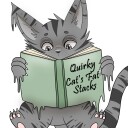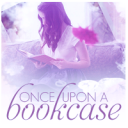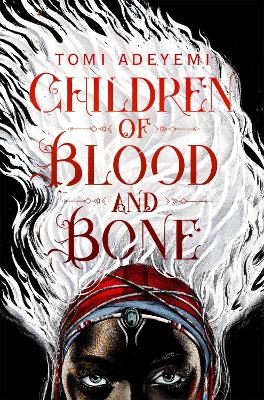
Tomi Adeyemi conjures a stunning world of dark magic and danger in her West African-inspired fantasy Children of Blood and Bone, the first in the #1 New York Times-bestselling Legacy of Orïsha series.
'A hugely enjoyable escapist story that makes you re-examine the world around you.' – Kiran Millwood Hargrave, author of The Deathless Girls
They killed my mother.
They took our magic.
They tried to bury us.
Now we rise . . .
Zélie remembers when the soil of Orïsha hummed with magic. When different clans ruled – Burners igniting flames, Tiders beckoning waves, and Zélie’s Reaper mother summoning forth souls.
But everything changed the night magic disappeared. Under the orders of a ruthless king, anyone with powers was targeted and killed, leaving Zélie without a mother and her people without hope.
Now Zélie has a chance to bring back magic to her people and strike against the monarchy. With the help of a rogue princess, Zélie must learn to harness her powers and outrun the crown prince, who is hell-bent on eradicating magic for good.
Danger lurks in Orïsha, where strange creatures prowl, and vengeful spirits wait in the waters. Yet the greatest danger may be Zélie herself as she struggles to come to terms with the strength of her magic – and her growing feelings for an enemy . . .
'Three perspectives, complex world-building and superlative characterisation make this a must for fantasy fans.' – Imogen Russell Williams, Metro
The movie of Children of Blood and Bone is in development and soon to be a major motion picture from Paramount Pictures and directed by Gina Prince-Bythewood of The Woman King.
- ISBN10 1509871357
- ISBN13 9781509871353
- Publish Date 8 March 2018 (first published 1 March 2018)
- Publish Status Active
- Publish Country GB
- Publisher Pan Macmillan
- Imprint Macmillan Children's Books
- Format Paperback (B-Format (198x129 mm))
- Pages 544
- Language English
Reviews


nannah
Content warnings:
attempted rape
child abuse (manipulation & emotional abuse)
Representation:
Everyone is Nigerian (I assume? They mention Lagos)
Zélie Adebola remembers the night her entire world changed. The night magic disappeared, the night Orïsha’s king killed her mother, every single maji, and left Zélie’s people oppressed and hopeless. But when the king’s daughter runs away with a holy artifact that could bring magic back, Zélie has a chance to bring hope back to her people.
With the very first page, I was drawn into this world. The magic system, the mythology, the characters, the writing. The set-up was so beautiful I couldn’t imagine not loving this story. I mean … giant cat steeds? Is there anything more badass than that?
Unfortunately, the introduction of the love interest and the “magic quest” dampened my enthusiasm. One by one, fantasy cliches began to layer up on the plot, and then when the romance began with the characters locking eyes and a “buzz” happening (in a very non-romantic setting), I just … had to close the book for a second to recover. Such creativity here and then there’s that?
The plot could be summed as the characters having to find holy artifacts to participate in a ritual on a specific day or else magic is lost forever. And, of course, the main character is the “one” to perform the ritual, too. It’s all a little much. And yes, I know every story has been told before and that what matters is how it’s told. And also that, you know, non-white people deserve stories white people have had for centuries. I’m not really a person who should talk about this (lmao, because I’m white), but you know what I mean. But I guess I was just disappointed, because literally everything else was just so masterfully done, it just seemed like this could have been done better?
The characters in general, though? Amazing. I’m in love with each and every one (except for Inan … we’ll get to that). I even love the villain, because he was just done So Very Well -- even when he talked like a stereotypical villain, lmao! He had his reasons, he had his backstory, and I just believed him every time he spoke that he was speaking from his own point of view, and not to be … you know, “evil”. And his daughter; her character arc was so satisfying to read. She's the princess who goes from what’s considered “weak” to confident and self-assured. She didn’t have much page time compared to the other main characters (Zélie; the love interest, Inan; and Zélie’s brother, Tzain), but her character growth was my favorite. She was still herself, but bloomed into a much brighter and confident version.
Now, Inan. He had such potential to be a complex and interesting character! He was torn between his (insta-)love for Zélie and his duty to his abusive father. However what could have been a battle for his own freedom from his father ended up being a flip-flopping instead of being true development ( aka Inan ended up betraying Zélie twice in the novel. Big-time plot events, where by the time the second one came around, I didn’t believe him. It was just like … really, we’re doing this again? The page before, Inan was saying how he couldn’t last another hour without Zélie by his side, waxing poetic about her appearance and saying how he would end this, etc., and then this page he was pledging genuine loyalty to his father without a real reason as to what happened between this change of thought. It was so jarring! ).
Anyway, this was still the best YA fantasy I’ve read in a long while, and that's my favorite genre! I’ll definitely pick up the sequel to see what else happens. And to see these characters grow even more.

Emma (SCR)
The narrator took some getting used to but it was the perfect choice for this book. The accent really makes you feel like you are in a faraway land. This really helps you to believe that anything is possible including magic.
The story is told from three POV. Zélie , Amari and Inan.
Zélie is a bit of an underdog but she is easy to root for. She has been through so much before this book even begins and by the end, I honestly do not know how she kept going. She is one strong and brave woman.
Talking of strong and brave women this book is full of them. From Zélie and Amari to Zu this book was full of strong women. If you need some real feisty females to take inspiration from then look no further than this story. I won't say they are perfect because no one is but there are a lot of things to learn from these women.
There are lots of twists and turns in this story along with characters who are constantly battling with not only each other but themselves.
I really enjoyed this book and I look forward to listening to book 2 shortly.

katjah

Quirky Cat
The series is based in a world where magic had once been alive and well, but is not gone. Young Zelie is determined to bring back magic though, because it’s the only way to save her people. This is a brilliant and emotionally compelling fantasy series if ever I’ve seen one.
Children of Blood and Bone is described as being a young adult fantasy, but honestly? It’s got a little bit of everything in it. Family, love, magic, courage, betrayal, culture, and so much more. I honestly believe that it appeals to a broader audience than the genre implies (but then again, I love this genre so I may be biased).
Side note: I actually listened to the audiobook for Children of Blood and Bone, and while it did take my longer that way, I think it was completely worth it. Not only was I able to hear names and terms, and therefore have a better idea of how they’re pronounced (I’m awful with names, have I mentioned that?) the woman reading the audiobook, Bahni Turpin, was absolutely amazing. Her accents for all the characters really brought a whole new level to the experience.
Warnings: There are a lot of really heavy moments in this novel. It adds to the depth of the story being told, but still consider yourself warned. There is slavery, graphic deaths, and torture. One of the main characters gets tortured, and you see it from both her perspective and another character’s perspective. Also, a couple of the mounts die during the course of this novel.
Side note for animal lovers: Nilah is fine, as far as I can tell. Now hopefully you won’t be the bundle of anxiety I was while reading/listening.
Children of Blood and Bone was an amazing read, and a truly unique experience. I can honestly now say that I understand why so many people gush about it as much as they do. This was a novel full of lush details, fascinating characters, and fantastic world building.
It isn’t every day where you get to read a novel with two extreme differences of opinion, and you have to admit to yourself that you can understand both sides. Now, mind you, in my case I could understand both sides, but I only really agreed with one side in particular. I certainly didn’t see a perfect solution that would make everyone happy. Thus I didn’t really envy the position these characters were in.
I loved Zelie’s character. She was so driven and passionate through the entire novel. It’s basically impossible not to get swept up in her one woman crusade. And yes, I know she had help along the way, I meant that more metaphorically than anything.
It was impossible not to feel moved by everything that happened in this book. There were so many tragedies happening all around, and so many people with whom we had the opportunity to care for. Tomi Adeyemi truly brought this world, and all of the characters within it, to life.
I’ll confess that I was a little bit surprised by the romantic subplot in this novel. That being said, it was brilliantly done. Every bit if it felt like it was driven by magic or the gods, or at least encouraged. I don’t want to say more, for sake of spoilers though.
While I loved Zelie, I think that Inan had possibly one of the most interesting character arcs I’ve seen in a while. (Spoiler warning) I’ve never seen a character go from being an antagonist, to a sympathetic character, to a character that I can’t connect to because he simply can’t stop making the wrong decisions. It made for a compelling tale, if nothing else. I have theories on what happened to him, and what might be next, but I’ll refrain for now.
The ending of Children of Blood and Bone has left me with so many questions…but I know that they’ll all likely be answered in the next novel. Mostly I’m just anxious to see what happens next. Also, I’m really happy that I managed to read this one before the adaptation came out.
For more reviews, check out Quirky Cat's Fat Stacks

Renee
I will still give this book five stars, but my opinion differs quite a bit from my first read.
I wish that there was an explanation in the beginning on why there is only one chance to save magic. It isn't explained until almost the end of the book. I assumed it was because that event doesn't happen in their lifetime again and their children would not be diviners since they did not transform into maji. But I shouldn't have to assume something, it should be explained before the ending if it is such an important part of the plot.
I didn't mind the romance as much as I did upon my first read. I understand Inan's feelings a lot better. He has always felt alone and scared. When he discovered his magic, he felt disgusted with himself and then he gets closer to this powerful, confident woman who doesn't judge him for what he hates about himself, but judges him for not reevaluating what he believes. He finally found someone who let him be his true self and that resulted in an extreme love. However, I still don't get Zélie. She gave Amari such a hard time for being a child of the king, but she accepted Inan too easily.
I do think that Tomi Adeyemi writes fantastic friendships and a lovely story. Compared to other authors, I would say that everything goes a bit too smoothly for the characters plotwise. They are easily accepted everywhere and people switch opinions about them regularly in their favour. Again, it reminds me of Avatar the Last Airbender, but that is only a huge compliment, not that I think it's plagiarism.
I also still stand by my complaint that it didn't make sense that they would stay another day with Zu. There is this deadline and Tzain would have normally at least tried to convince Zélie not to stay longer.
--------------------------------------------
First read: February 2019
I loved this book so much, until suddenly, almost at the end, the romance started to take over. Just... why? The worldbuilding could have been better, but I still loved it. However, I did read a review about this book not doing justice to the Nigerian culture, so that is something to keep in mind when reading this book.
The book started as a fast-paced book, but after the introduction of all the characters getting together, it was obvious that this book was going to take a long while before real action would occur. There were some action-packed moments, but not in the sense that I was actually afraid for the characters, who I absolutely loved. They were inspiring, not flawless, and understandable. At least, until the romance jumped out of nowhere and ruined it. Why did Zélie resent Amari for such a long time and just fall for Amari's brother out of nowhere? Who had done a lot more wrong than Amari had ever done? At least we had Tzain calling Zélie out for her stupidity, but I was still so frustrated as a reader. The romance came out of nowhere, and way to suddenly, and Zélie had proven over and over again that she was not that kind of character. Apparently not... Even before anything happened between Zélie and Inan, they were already talking about ruling Orïsha together... I mean...
Oh, besides that, why did they stay a day longer with Zu? It did not make any sense! The adventure started with not enough time, and suddenly they could spare a day? As if they had all the time in the world? Why would they even choose that? Especially Tzain would normally not just agree to stay somewhere with this deadline hunting them. At that point, the characters started to act very out of character... However, I must admit, the ending made everything better. They acted like I had expected them to act again, the author was not afraid to let people die, and I cannot wait to read book two.

Leah

teachergorman
Adeyemi’s book is set in the kingdom of Orïsha in a world that has been stripped of magic for eleven years. An evil (but believably evil) king took magic out of the world and used the opportunity to kill all the magic users, the Magi, easily identified by the white streaks in their hair. One of those murdered Magi was the mother of the novel’s hero, Zélie. Now, thanks to some fortuitous circumstances that are just believable enough we share some characters’ skepticism about divine intervention, Zélie has the opportunity to bring magic back into the world. The hefty 525 pages whizzes by as we follow Zélie and her allies on their quest.
It’s tricky to compare this book to others because I don’t want to make it sound derivative. It’s very imaginative and unique, and the ways it draws on other sources don’t feel cheap or exploitative. They aren’t really homages or allusions, either. Instead, Children of Blood and Bone feels like a fantasy that is tapping into deep human archetypes while doing something very new. That, for me, was the connection that made me think of other works. It’s not that Children of Blood and Bone copied any of them, but it was unique in a similar way. For example, I couldn’t help but think of Sang Kromah’s Djinn, even though the two books have little in common. Djinn is set in our world in the modern day but tells a Buffy-esque story involving Djinn rather than vampires. So what’s the connection? While Children of Blood and Bone and Djinn are radically different, both authors are drawing on elements of their own heritage and carefully selected bits of African folklore to breathe new life into fantasy, though in radically different ways.
Children of Blood and Bone also made me think of Mikko Azul’s The Staff of Fire and Bone, and not just because of the similar titles. Azul’s world is an expansive fantasy world much like Adeyemi’s, with a deep lore that goes back to a mythological cosmology at the beginning of these worlds’ creations. Azul also taps into elements of folklore from cultures other than the traditional European ones that tend to populate high fantasy. I love that about both books.
As I read Children of Blood and Bone, I also couldn’t help but think of Karen Eisenbrey’s Daughter of Magic. Both novels contemplate the way a society where only some people have magical ability might navigate that inescapable power imbalance. The two novels imagine that happening completely differently. In Ayedemi’s, the Magi are feared, slaughtered, and their children repressed to prevent magic from returning. In Eisenbrey’s, the wizards become something like civil servants, healing, investigating crimes, and preventing natural disasters. Yet there’s still a distrust, and Adeyemi’s Children of Blood and Bone makes me wonder if the wizards of Eisenbrey’s world could easily find themselves in the same situation in the universe she’s created in Daughter of Magic.
Adeyemi’s world also made me think of Avatar, the Last Airbender (the wonderful cartoon, not the horrible movie). I’m hesitant to even mention that because the worlds are so different. But both center on a conflict between people with magic and an authority that wants to wipe them out to consolidate its power. Adeyemi’s novel is more pointed in this regard. To its credit, it made me see Avatar, a cultural product I love, in a deeper way. Adeyemi’s Children of Blood and Bone is more explicitly a parable about the way colonial powers and white authorities in them have treated People of Color and especially Black people in our world. Adeyemi graciously avoids making the novel explicitly about race which makes more sense in the narrative of her world, but I wouldn’t have minded if she had because I read it there right under the surface and appreciated it. Not only was this novel wrestling with questions about the moral dynamics of fighting back against oppression (Outright violent rebellion? Revenge? Working within the system without aiding the oppressor? Staying loyal to a country that is clearly doing evil?), but it focuses on the human cost of that oppression, making us feel each death, each torture, each loss of a loved one. Adeyemi reveals her intentionality in her afterward where she lists some of those names we can never hear too many times, Jordan Edwards, Tamir Rice, and Aiyana Stanley Jones. The novel made me think even more about the survivors, and I was glad to read the name Diamond Reynolds in the afterward, too. She, along with her four-year-old daughter, was in the car taking the video when Philando Castile was senselessly, unconscionably, unforgivably murdered. Children of Blood and Bone, though set in a fantasy kingdom of swords and magic, give us many characters who are like Diamond Reynolds, survivors who have to figure out how to live with the horror they’ve seen. It also gives us characters who maintain that oppression and try to justify it to themselves in various ways, and that’s part of what makes Adeyemi’s novel work so well. The villains never twirl their mustaches and relish their evil acts, no matter how gruesome their behavior. They believe they are doing what they have to do to maintain stability, to demonstrate their loyalty to their country, and to subjugate the people they’ve been taught to fear. If we’re ever going to open our eyes and address the fundamental rot of racism in our country (and in the rest of the world, all of which is infected by colonialism), we have to try to understand why people maintain systems of oppression, recognizing the human frailty of the oppressors without making excuses for their (our, my) behavior. None of Adeyemi’s characters, no matter how heroic, have clean hands by the end of the novel, and that’s a powerful choice and a strong statement Adeyemi has made about oppression and the process of combating it.
So, don’t read Children of Blood and Bone because the author is Black and lots of white people are suddenly waking up to the inequities in the publishing industry that have kept too many books by too many great Black authors out of readers’ hands. That’s a well intentioned motivation, and if it brings more equality to publishing, that’s great, but that’s insufficient for the quality of this novel. And don’t just read it because you enjoy fantasy and want to embark on a thrilling quest story in a richly conceived universe. Children of Blood and Bone will provide that, but if you just want to get to the end of a quest and see someone throw a ring in a volcano, you could read a different series. Read this novel because, like all great literature, it’s empathy practice. We learn to love people who never existed so we can strengthen our empathy muscles and use them to embrace real people we meet. This novel will make you feel about oppression and resistance, and in the end it will inspire you to rise.

Jo
Children of Blood and Bone by Tomi Adeyemi was one of my most anticipated reads of the year - an #OwnVoices West African inspired high fantasy! And it was absolutely incredible!
Zélie is a divîner, a person with the ability to become a maji once they turn 13. But Zélie is 17 now, and still a divîner, because magic has gone. King Saran of Orïsha, out of fear and hatred, took away magic, and killed all the maji - including Zélie's mother. Now divîners are persecuted and oppressed, forced to pay taxes to keep them down. If they can't pay, they go into the stocks and become slaves. Zélie and her family try hard to make ends meet as fishermen, but with the ever increasing taxes, it won't be long until Zélie becomes a stocker. When Zélie helps a young woman escape from the guards, she doesn't realise she's helping Princess Amari, King Saran's daughter. A conflicted Amari has escaped from the palace with a scroll that can bring back the maji's power, after witnessing her father kill her divîner best friend after touching the scroll awakens her magic. She has seen what her father can do, and wants to bring it to a stop. Together, along with Zélie's brother, Tzain, they must take the scroll to Châdomblé, a shrine to the gods, where they will discover just what it takes to bring back magic. But hot on their heels in Inan, heir to the throne and Amari's brother, sent by the King to hunt them down. Time is ticking by fast, with only so much time left to complete the ritual, and Inan close behind. Zélie only has one chance to bring magic back to Orïsha, or doom the divîners to a life without magic for good.
Aah, Children of Blood and Bone was so good! I loved the world building! It has it's own creation story, with Nana Baruku - a kind of Mother Nature type figure - creating humans and creating the gods. And as Nana Baruku created both, the relationship between divîners/maji and their respective gods was a sibling relationship. They're still gods, powerful and not exactly present, but Zélie thought of her goddess, Oya, as her sister deity. There are ten different clans of maji, each with their own magic and abilities, each with their own god or goddess. Or there were before King Saran took away magic and murdered all the majis. Now, for the divîners, life is one of oppression, and they live in constant fear. If a divîner is to put one toe out of line, they're beaten by the guards. If they can't pay their taxes, they become stockers - slaves - to work out your debt. But of course, the taxes keep rising, so you never work out your debt. Once you're a stocker, you're a stocker until you die, and conditions are so bad, that you don't last that long.
This is the world Zélie lives in before she meets Amari. Mama Agba, an elderly woman in her town, teaches divîners how to fight in secret, but they can't really fight back if they don't want to be killed. But then she does meet Amari and everything changes. Zélie is such an incredible character! She is so strong and so resilient, even though she struggles and doubts herself and whether she can do this. She has already been through so much; she witnessed the guards taking away her mother, her father being beaten to near death, and her mother murdered, strung up from a tree by a chain, along with every other maji in their town. None in her family have been the same since. But when she hears about the scroll Amari has, and tells Mama Agba, she discovers she is the only person who has a chance to bring back magic, and it's no easy feat. Children of Blood and Bone is action packed and extremely fast-paced, and it doesn't let up. Inan is never too far behind, and the three - Zélie, Amari, and Tzain - have to time to rest, recover and regroup when life throws them a curve ball.
The book is also narrated by Amari and Inan. I really liked Amari. She's quite innocent, having never left the confines of the palace due to her father's overprotective attitude and fear of the divîners. She takes a great risk when she runs from the palace with the stolen scroll, but she can't just sit back and do nothing after she sees her father kill her best friend, Binta. And it's such a courageous thing to do, because she knows what her father is like. Maybe not the full extent, at first, but she knows if she's caught, there will be more than hell to pay. But she never fully realised what it would mean to run away with the scroll. Now she's on this quest never wanted, experiencing hardships she's never had to before. She doesn't complain, but she is scared and she's finding it difficult, and she fears she's going to be a hinderance to Zélie and Tzain. Tzain shows her kindness, but Zélie can only see the daughter of the man who murdered her mother, and has nothing but contempt for this pampered princess who knows nothing of the world. Watching Amari grow into her strength, become more confident, and actually become an asset - and for her to realise that - is wonderful. And seeing the friendship between Amari and Zélie develop was beautiful.
However, I absolutely hated Inan. He is such an ass. And I mean that in the British donkey way, not the American backside way. He's just an idiot. Yes, he's a Captain in the army, and he knows how to fight, is big and strong and pretty deadly. But as a person, he's an ass. What Adeyemi does so well is that she makes him this complicated person. I mean, I understood why he's an ass. He's been fed his whole life all this rubbish from his father about how maji are dangerous, and if they have magic, then everyone will suffer. He's also, as the heir to the thrown, had "duty before self" drummed into him. Things happen along the way that make him doubt what his father has told him. He discovers things, he experiences thing, and it makes him question everything he's ever known. But then he sees other things that completely back up what his father has told him. But it's like he is completely unable to think for himself. It doesn't matter how much he discovers or experiences, he's been brainwashed by his father so much that he dithers back and forth so much, and oh my god, I hated him. I know I keep saying it, but he was such an ass! And when it comes to his actions towards the end of the book, I have much stronger words to describe him. His character and his narration are important to the story, but I just wanted to shake him. Give him a hard slap around the face and tell him to wake up.
As well as being an action packed, fully formed high fantasy, Children of Blood and Bone also touched on real world issues. It touched on colourism and skin bleaching. The divîners/maji tend to be quite dark skinned, and the nobility lighter skinned, so there's this desire to be lighter skinned. Although divîners/maji have white hair, and if you don't, it's clear you're not one, there is a sense that being darker skinned is quite an issue, and Amari has suffered her mother's treatments in trying to make her skin lighter. The way the oppression the divîners experience seemed, to me, to be a clear mirror of racism in our own world; every character in Children of Blood and Bone bar one is Black, but the similarities between racism in our own world and how the divîners were discriminated against are just to obvious. I could potentially be reading too much into things, but there's a possibility that Inan is supposed to represent the white person who is says they're against racism and aren't racist, yet believes what they're told about Black people and other people of colour, and want to keep the status quo as it is. There's also slavery, with the divîners becoming stockers. So there's a lot going on here, and possibly elements I may have missed due to my privilege.
I do have one little issue with Children of Blood and Bone, and that's the cliffhanger ending. I literally have no idea what happened. It just ends. I know something happened, but what that something is, I don't know. I just wish we had a little more to go on. However, it's done it's job, because I absolutely need to know what happens next. There were a number of things that happened that are going to have massive consequences, and the sequel is going to be huge! Children of Blood and Bone was just awesome and pretty damn epic, and I'm so looking forward to the second book in the Legacy of Orïsha series, children of Virtue and Vengence!
Thank you to Macmillan Children's Books via NetGalley for the eProof.

Terri M. LeBlanc
I loved the world-building. The magic and why it was gone from the world was a fascinating story, but beyond connecting to the old tales and the power of the magic as it started to come back, the changing POVs, which by the end all sounded the same, made it difficult to connect with any one character.
